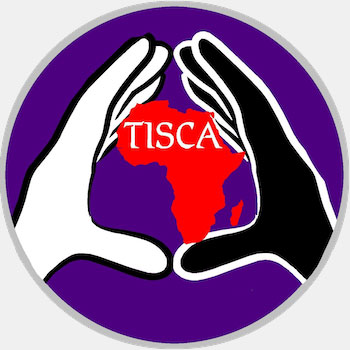We use cookies on this site to enhance your experience.
By selecting “Accept” and continuing to use this website, you consent to the use of cookies.

July 22, 2015
By: Magnus Mfaofo M'Carthy and Jeff Grischow
Ms. Doris Appiah Danquah attended one of the premiere high schools in Ghana, Achimota school in Accra, Ghana. Due to her excellent academic performance, she was eventually admitted to the Medical School at the University of Ghana. However, bouts of depression made it difficult for her to focus on her studies and she dropped out of university. For the next 22 years, she was moved through a series of fetishes and spiritual camps, where she was routinely drugged, stigmatised, chained and beaten. At one point she was made to understand that her mother had cursed her and made her mentally ill. Also, she was told that her condition was because she had not served God well and would never recover. One time, a group of children who knew her bought her food but threw the plates away after she had finished eating. Eventually Danquah became an influential advocate for the rights of the mentally ill in Ghana, and she was featured in a 2014 documentary titled, "Still I Arise. The Story of Ms. Doris Appiah Danquah," sponsored by Britain’s international development agency DFID.
The plight of Ms. Danquah as featured in the documentary is not unique. Despite efforts to improve the mental health system, the mentally ill continue to be stigmatized, discriminated against and socially excluded. I have found four levels of stigmatization in Ghana: within the family, in public settings, at the workplace and among health service providers. At the family level, researchers have shown that mentally ill persons have been deserted by their families, beaten, molested and denied access to their children. At the public level, it is usually the friends and neighbours who act in degrading ways towards of the mentally ill. People mental illness are deserted and shunned and denied the opportunity to marry. In the workplace, employers refuse to hire people with mental illnesses or sack them if they become ill after they are hired. Some employers retained the employees but reduced their hours or days worked. One study (Tawiah, 2012) found that females faced more discrimination at work than their male counterparts. In the healthcare sector, mentally ill patients have been denied food, medicine and shelter. They also have been subjected to cruel involuntary treatments (including forced injections) and physical abuse.
Numerous factors contribute to this behaviour. One problem is the cultural myth that attributes mental illness to either curses or the visitation of the sins of ones forefathers or a form of weakness. These beliefs justify the shunning of the victims and their treatment as second class citizens. It also explains why people such as Doris Appiah Danquah are sometimes sent to consult fetishes or subjected to abuses in spiritual camps. Another problem is the lack of psychosocial approaches to the treatment of mental illness. Ghana’s mental health system is overly dependent on medication, which can negate the effective treatment of the mentally ill. But even where medicines are effective, Ghana’s lack of psychiatrists (only 10 in total in 2008) and shortages of antipsychotic and psychotropic medications severely limit treatment options. As a result, the psychiatric hospitals are severely overcrowded and families are forced to explore alternative treatment through fetishes, mallams and churches.
The situation seems dire, but new developments in disability rights have allowed disabled activists to begin combatting stigmatization and discrimination. After 22 years, Doris Danquah was able to go back to the university to get a nursing degree. She is now a strong advocate for the rights of the mentally ill, and along with other activists she is working to change socials norms and public policies. Her story deserves a wide audience.